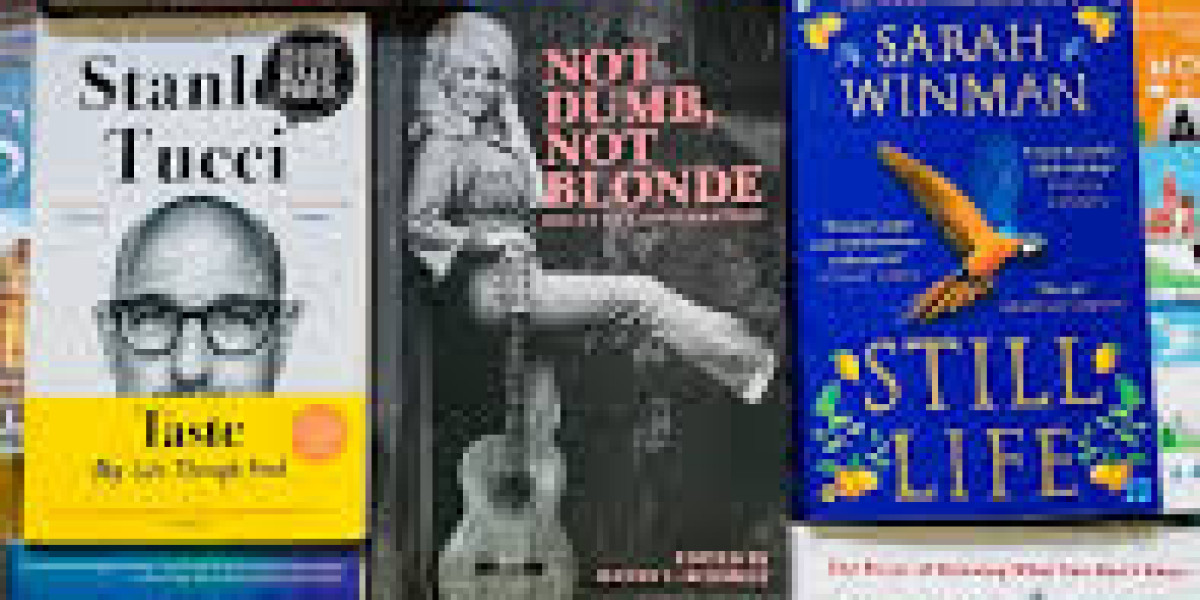The digital age has brought significant changes to the way we live, work, and engage with entertainment. Among the many industries transformed by the internet and technology, publishing and reading habits have seen a profound shift. Today, readers have access to thousands of fiction books online, available at their fingertips, whenever and wherever they choose. Whether through e-books, audiobooks, or online platforms offering free or paid access, online fiction books have opened new doors for literary exploration. This article will explore the world of online fiction books, their rise in popularity, the benefits and challenges they present, and how they have changed the reading culture.
The Rise of Online Fiction Books
The availability of fiction books online has grown exponentially over the past decade. This rise can be attributed to several factors, including the proliferation of digital devices, the ease of online publishing, and the desire for more accessible and affordable reading materials.
One of the primary drivers behind the popularity of online fiction books is the convenience they offer. With smartphones, tablets, and e-readers, people can now carry entire libraries in their pockets. This ease of access means that readers no longer need to visit a bookstore or library to get the latest novels or their favorite classics. They can simply browse online, make a purchase, and start reading instantly. For busy individuals who want to make the most of their commuting time, waiting periods, or leisure moments, online fiction books are a game-changer.
Additionally, the rise of self-publishing platforms like Amazon Kindle Direct Publishing (KDP), Smashwords, and Wattpad has allowed aspiring authors to bypass traditional publishing houses and share their work with the world directly. This democratization of publishing has contributed to the vast variety of fiction books available online, with genres and subgenres catering to every reader’s taste, from romance and fantasy to science fiction, mystery, and horror.
The Benefits of Online Fiction Books
There are several key benefits that make online fiction books appealing to readers:
1. Convenience and Accessibility
As mentioned, the convenience of accessing fiction books online is one of the biggest advantages for readers. Whether through a dedicated e-reader like Amazon Kindle or a smartphone app like Google Play Books or Apple Books, readers can store thousands of books without worrying about physical space. Furthermore, with features like bookmarks, notes, and highlights, reading digital books has become an interactive experience that allows readers to engage more deeply with the text.
Online fiction books are also accessible to people around the world, regardless of geographical location. Readers in countries with limited access to physical bookstores or libraries can now access global literature without the limitations of geography. All that’s needed is an internet connection, and a world of stories is available at their fingertips.
2. Affordability
For many readers, the cost of physical books can be prohibitive. Online fiction books, particularly e-books, are often priced lower than their physical counterparts. In some cases, classic fiction books that are no longer under copyright protection are available for free online through platforms like Project Gutenberg, Open Library, and Google Books. For readers who are voracious consumers of literature, the cost savings from reading online fiction books can be significant.
Self-publishing platforms like Amazon KDP also allow independent authors to set competitive prices for their books, which often means that readers can discover new and exciting works at lower prices than traditionally published books.
3. Diverse Range of Genres and Authors
One of the most appealing aspects of online fiction books is the diversity of genres and authors available. The rise of self-publishing and digital platforms has given a voice to a wide range of writers, including those from marginalized communities who might not have had access to traditional publishing routes. As a result, readers can explore new perspectives, cultures, and storytelling styles that might not be as readily available in mainstream bookstores.
Online platforms like Wattpad, Archive of Our Own (AO3), and Radish Fiction cater to niche genres and provide opportunities for new writers to experiment with their work and build dedicated readerships. Wattpad, for example, has become a hub for young adult fiction, fanfiction, and romance, while AO3 is known for its wide array of fan-written stories across various fandoms. These platforms allow readers to discover stories they might not find in traditional bookstores, further broadening their literary horizons.
4. Customizable Reading Experience
Online fiction books offer a customizable reading experience that can enhance enjoyment for many readers. E-readers and apps allow users to adjust font sizes, choose different font styles, and change background colors to reduce eye strain. This flexibility makes reading more comfortable, especially for those with visual impairments or specific reading preferences.
Audiobooks, another format of online fiction books, have surged in popularity in recent years. Services like Audible, Scribd, and Google Play Audiobooks allow readers to listen to their favorite stories on the go. This format is especially appealing for people who may not have the time to sit down and read, as they can listen while commuting, exercising, or doing household chores.
5. Interactive Features and Social Sharing
The digital nature of online fiction books allows for interactive features that traditional books cannot provide. Some platforms allow readers to comment on specific parts of a book, engage in discussions with other readers, and share their thoughts on social media. This social aspect of reading has created a more communal experience, where readers can connect with others who share similar tastes in literature.
Platforms like Goodreads and online book clubs have also emerged as a result of the digital shift, providing readers with a space to discuss books, share recommendations, and follow their favorite authors. This interconnectedness has helped build a vibrant online reading community, where the love of fiction is shared across borders and cultures.
Online Platforms Offering Fiction Books
There are many platforms where readers can access online fiction books, each catering to different preferences and reading habits:
1. Amazon Kindle Store
The Amazon Kindle Store is one of the largest and most well-known platforms for purchasing e-books. It offers a vast selection of fiction books across all genres, from bestsellers to indie works. Kindle Unlimited, a subscription service, allows readers to access a large library of books for a monthly fee. With the Amazon Kindle app, users can sync their reading across multiple devices, making it easy to pick up where they left off, whether they are using a Kindle e-reader, smartphone, or tablet.
2. Wattpad
Wattpad is a platform that allows users to read and write stories, with a strong focus on young adult fiction, romance, and fanfiction. It has a vast and active community of both writers and readers, making it an excellent platform for discovering new, emerging talent. Wattpad is free to use, although it does offer premium options for readers who want an ad-free experience or exclusive access to certain content.
3. Scribd
Scribd is a subscription service that offers access to a wide variety of content, including e-books, audiobooks, and documents. For a monthly fee, readers can access an extensive library of fiction books, ranging from classics to contemporary bestsellers. Scribd is often compared to Netflix for books, as it allows unlimited access to its content, making it an attractive option for avid readers.
4. Project Gutenberg
Project Gutenberg is a digital library offering over 60,000 free e-books, most of which are public domain titles. It’s a great resource for readers looking to explore classic literature from authors like Jane Austen, Charles Dickens, Mark Twain, and many others. The platform allows users to download books in various formats, including ePub, Kindle, and plain text, making it accessible for different devices.
5. Apple Books
Apple Books, available on iOS devices, offers a seamless reading experience for users in the Apple ecosystem. The store has a wide selection of fiction books, including bestsellers, indie publications, and audiobooks. Apple Books also integrates with Siri, allowing for voice commands to control reading or playback while listening to audiobooks.
6. Audible
Audible is the leading platform for audiobooks and is a subsidiary of Amazon. It offers a massive library of fiction books in audio format, narrated by professional voice actors, making it an ideal choice for readers who prefer listening to stories rather than reading them. Audible operates on a subscription model, where members receive credits to purchase audiobooks each month. It also offers exclusive content, such as Audible Originals, which are audiobooks produced specifically for the platform.
The Challenges of Online Fiction Books
While the rise of online fiction books offers numerous benefits, it also presents some challenges:
1. Screen Fatigue
One of the downsides of reading online fiction books is screen fatigue. Prolonged use of digital devices can lead to eye strain, headaches, and discomfort, particularly if readers are not using e-ink devices like the Kindle, which mimics the appearance of ink on paper. This issue can deter some readers from fully embracing e-books, as they may prefer the tactile experience of holding a physical book and turning its pages.
2. Piracy and Copyright Issues
The digital nature of online fiction books has led to an increase in piracy, where books are illegally shared and distributed without compensation to the authors or publishers. This is a significant concern for authors, especially independent writers who rely on book sales for their income. While many platforms have systems in place to prevent piracy, it remains a challenge to fully combat this issue.
3. Loss of the Physical Book Experience
For many readers, there is a sentimental value attached to physical books that cannot be replicated by digital versions. The smell of a new book, the feeling of flipping through pages, and the satisfaction of seeing a collection of books on a shelf are all aspects of the physical reading experience that some readers miss when transitioning to online fiction books. While e-books offer convenience, they cannot entirely replace the sensory experience that comes with reading








